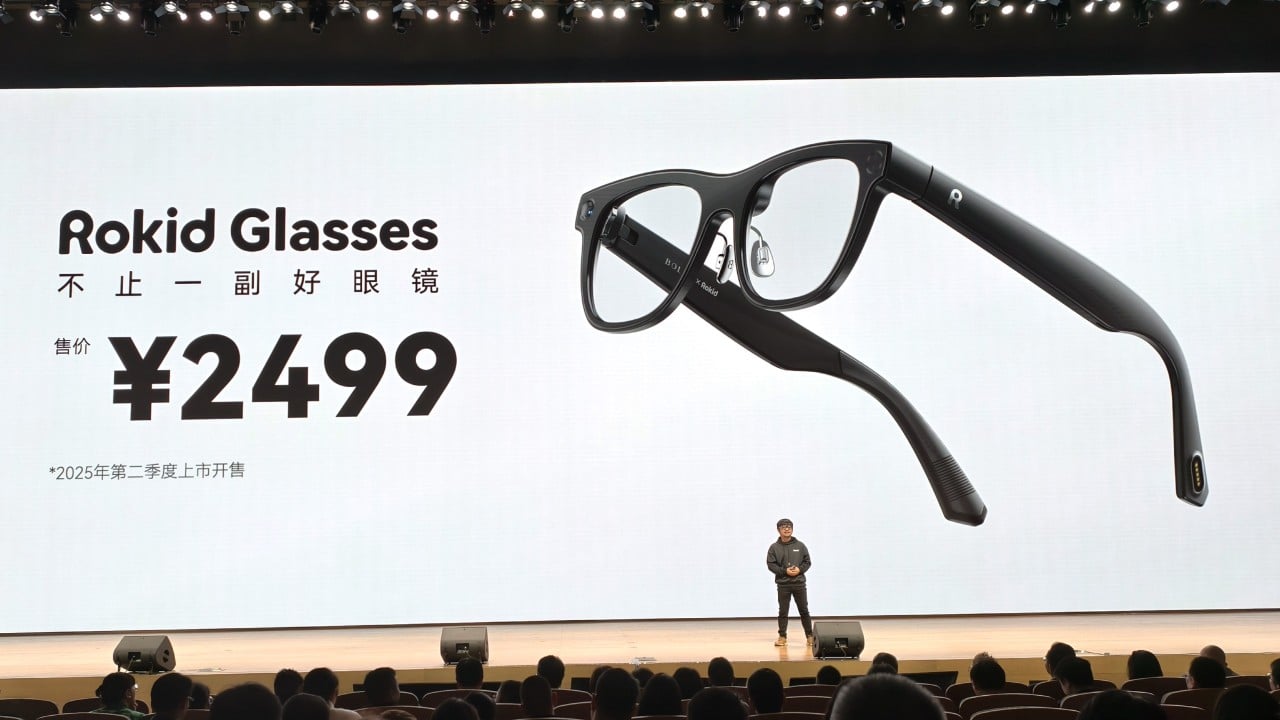Chinese augmented-reality (AR) device maker Rokid made waves on social media and in the stock market after its founder showed how the start-up’s artificial intelligence (AI) glasses could be used in a real-world setting.
Advertisement
While speaking last week at a government event in Rokid’s hometown Hangzhou, capital of Zhejiang province, founder Misa Zhu Mingming had his speech notes projected directly onto a pair of AR glasses he was wearing, instead of reading from a printed script or the prompter. He was able to flip through the virtual pages using a smart ring on his finger, according to a video shared by the company.
Rokid Glasses have become the latest example of AI being used to upgrade products made in China. Producers of smart glasses, along with manufacturers from industries such as robotics and electric vehicles, have found new momentum after adopting advanced open-source AI models from start-up DeepSeek.
Rokid’s presentation on February 18 sparked lively discussions online. Last weekend, the hashtag #ScriptOnGlassesTurnPagesWithRing became the tenth top-trending topic on Chinese microblogging site Sina.

The AI Wearable Index, which tracks 50 publicly-listed Chinese companies related to the sector, surged more than 10 per cent in the past five trading days, according to financial data provider Wind Information. Leading the group is Shanghai-listed Mingyue Optical Lens, which climbed over 10 per cent on Tuesday.
Advertisement
Rokid Glasses, the company’s first AR glasses equipped with large language models (LLMs), are designed to recognise images, interpret words and navigate roads. At 49 grams, they weigh similar to a pair of regular sunglasses and have a battery life of around four hours after being charged for 10 minutes inside a case.

